December 28 stands as one of history’s most eventful days, witnessing the rise and fall of empires, groundbreaking discoveries, and moments that shaped our modern world across centuries of human achievement.

Politics and Government Events on December 28
1918 – First Woman Elected to British Parliament
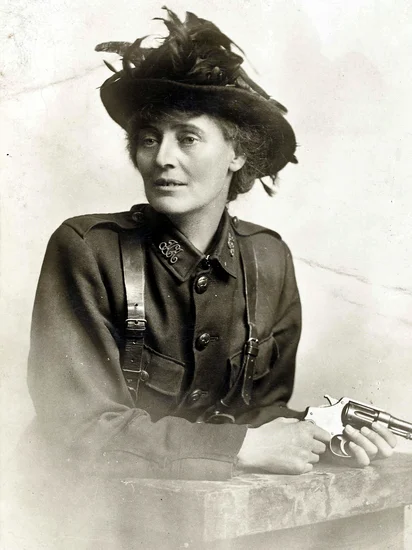
Constance Markievicz achieved a historic milestone while detained in Holloway prison, becoming the first woman elected Member of Parliament to the British House of Commons. Her election shattered centuries of male-dominated British parliamentary tradition.
The Irish revolutionary’s victory marked a pivotal moment in the women’s suffrage movement. Her groundbreaking achievement opened doors for future generations of women in politics worldwide.
1967 – First Woman Owns NYSE Seat

American businesswoman Muriel Siebert broke through Wall Street’s ultimate glass ceiling by becoming the first woman to own a seat on the New York Stock Exchange. Her $445,000 purchase challenged the male-dominated financial establishment.
Siebert’s historic achievement required tremendous persistence and financial backing. Her success paved the way for women’s increasing participation in high-level finance and investment banking.
1972 – Military Draft Ends
The last scheduled day for military induction by the Selective Service System marked the end of the Vietnam War era draft. President Nixon declared this a national day of mourning for former President Truman’s death, causing federal offices to close.
Approximately 300 men avoided induction due to the closures, and they were never subsequently drafted. This date effectively ended America’s reliance on conscription for military service.
1973 – Endangered Species Act Signed
President Richard Nixon signed the United States Endangered Species Act into law, creating comprehensive federal protection for threatened wildlife. The legislation established legal frameworks for species conservation and habitat preservation.
This landmark environmental law transformed wildlife protection in America. The Act became one of the most powerful conservation tools in environmental history.
2006 – Somalia Government Captures Mogadishu
The militaries of Somalia’s Transitional Federal Government and Ethiopian troops captured Mogadishu unopposed during the War in Somalia. This victory marked a significant shift in the ongoing conflict.
The capture represented a major strategic breakthrough for government forces. However, the victory proved temporary as insurgent groups continued challenging federal authority.
Military and Naval History on December 28
1941 – Operation Anthropoid Commences
World War II’s Operation Anthropoid began with the daring plot to assassinate high-ranking Nazi officer Reinhard Heydrich. British-trained Czech and Slovak paratroopers initiated this dangerous mission behind enemy lines.
The operation represented one of the war’s most audacious resistance efforts. Heydrich’s eventual assassination would trigger brutal Nazi reprisals throughout occupied Czechoslovakia.
1943 – Battle of Ortona Concludes
After eight days of brutal house-to-house fighting, the Battle of Ortona concluded with the 1st Canadian Infantry Division’s victory over the German 1st Parachute Division. The Canadians successfully captured the strategic Italian town.
This intense urban warfare demonstrated the fierce resistance German forces maintained in Italy. The Canadian victory secured a crucial foothold for Allied operations in the Mediterranean theater.
1943 – Operation Ulussy Launches

Soviet authorities launched Operation Ulussy, beginning the systematic deportation of the Kalmyk nation to Siberia and Central Asia. This brutal campaign forcibly relocated an entire ethnic population.
The operation represented Stalin’s ruthless ethnic cleansing policies during World War II. Thousands of Kalmyk people suffered tremendous hardships during their forced relocation.
1956 – Baling Talks Address Malayan Emergency
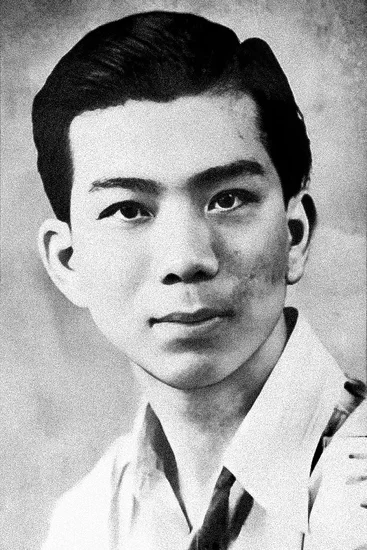
Chin Peng, David Marshall, and Tunku Abdul Rahman met in Baling, Malaya, attempting to resolve the ongoing Malayan Emergency situation. These high-level negotiations sought to end the communist insurgency.
The talks represented a crucial diplomatic effort to achieve peace. However, the negotiations ultimately failed to produce lasting solutions to the conflict.
Science and Discovery Milestones on December 28
1908 – Messina Earthquake Devastates Southern Italy
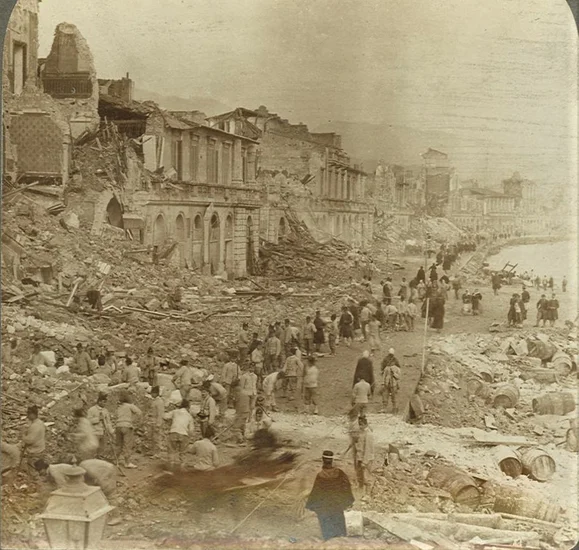
The catastrophic 7.1 magnitude Messina earthquake struck Southern Italy with maximum Mercalli intensity of XI (Extreme), killing approximately 80,000 people. This disaster ranks among history’s most devastating seismic events.
The earthquake virtually destroyed the cities of Messina and Reggio Calabria. The massive casualty toll highlighted the urgent need for improved building standards and earthquake preparedness.
1989 – Newcastle Earthquake Strikes Australia

A magnitude 5.6 earthquake hit Newcastle, New South Wales, Australia, killing 13 people and causing widespread damage. This unexpected seismic event shocked the region known for geological stability.
The earthquake demonstrated that even areas with low seismic activity could experience destructive tremors. The disaster prompted significant improvements in Australian building codes and earthquake preparedness.
1956 – Baling Talks Scientific Approach
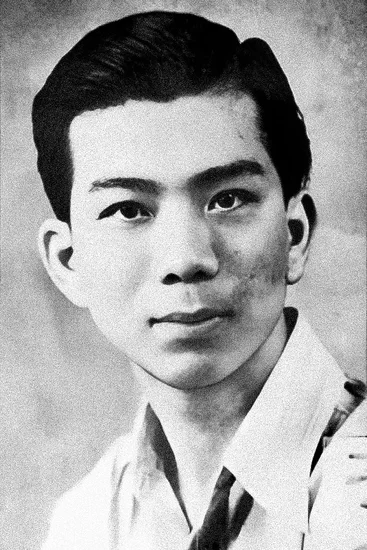
The systematic diplomatic approach taken during the Baling talks represented advanced conflict resolution methodologies. International mediation techniques demonstrated evolving political science applications.
These negotiations showcased emerging diplomatic frameworks for addressing insurgency conflicts. The scientific approach to peace-building influenced future conflict resolution strategies.
Cultural and Arts Events on December 28
1912 – San Francisco Municipal Streetcars Begin
The first municipally owned streetcars took to the streets in San Francisco, marking a revolutionary approach to public transportation. The city’s decision to operate its own transit system challenged private monopolies.
This municipal ownership model influenced urban transportation policies nationwide. San Francisco’s streetcar system became a template for other cities seeking public transit alternatives.
1902 – First Indoor Professional Football Game

The Syracuse Athletic Club defeated the New York Philadelphians 5-0 in the first indoor professional football game at Madison Square Garden. This historic match demonstrated football’s adaptability to different venues.
The indoor game showcased football’s growing popularity and commercial potential. This innovative approach to the sport helped establish professional football’s future development.
1944 – NHL Record-Setting Performance
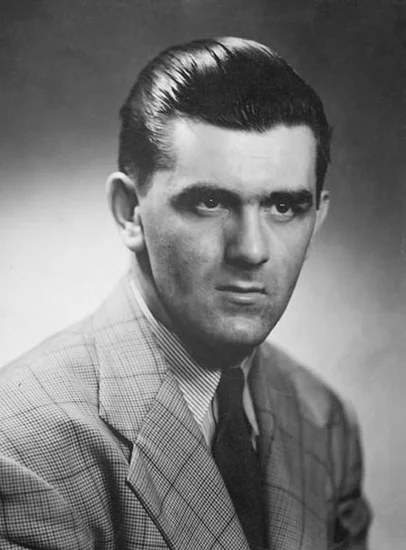
Maurice Richard became the first player to score eight points in one NHL ice hockey game, setting a record that highlighted individual excellence in professional sports. His explosive performance captivated hockey fans worldwide.
Richard’s achievement demonstrated the exceptional skill level emerging in professional hockey. This record-setting game helped establish the NHL’s reputation for athletic excellence.
Religious and Social Events on December 28
2009 – Karachi Bombing During Ashura

Forty-three people died in a suicide bombing in Karachi, Pakistan, where Shia Muslims were observing the Day of Ashura. This tragic attack targeted religious practitioners during sacred observances.
The bombing highlighted ongoing sectarian violence affecting Muslim communities. Such attacks demonstrated the vulnerability of religious gatherings to extremist violence.
1918 – Irish Revolutionary Achievement
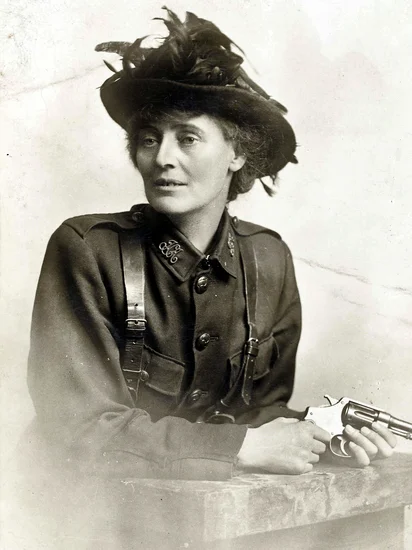
Constance Markievicz’s election while imprisoned demonstrated the intersection of political activism and religious conviction. Her Irish revolutionary activities reflected deep social and cultural commitments.
The achievement represented broader social movements challenging established hierarchies. Her success inspired other marginalized groups seeking political representation.
1973 – Environmental Protection Movement
The Endangered Species Act signing reflected growing environmental consciousness in American society. This legislation demonstrated evolving social values regarding nature conservation.
The law represented a fundamental shift in how society viewed human relationships with wildlife. Environmental protection became a moral imperative for future generations.
Business and Economic Events on December 28
1967 – Wall Street Barrier Broken

Muriel Siebert’s purchase of a New York Stock Exchange seat for $445,000 shattered financial industry gender barriers. Her investment represented both personal achievement and broader economic change.
The transaction demonstrated women’s growing financial independence and investment capabilities. Siebert’s success influenced other women to pursue careers in finance and investment banking.
1912 – Public Transit Innovation
San Francisco’s municipally owned streetcar system represented innovative public-private economic models. The city’s investment in transportation infrastructure demonstrated progressive municipal economic policies.
This public ownership approach challenged traditional private monopolies in urban services. The model influenced other cities to consider municipal ownership of essential services.
1973 – Environmental Economics
The Endangered Species Act created new economic frameworks balancing development with conservation. This legislation established precedents for environmental impact assessments in business decisions.
The law fundamentally changed how businesses approached land use and development projects. Environmental considerations became integral to corporate planning and investment strategies.
Transportation and Infrastructure on December 28
1912 – San Francisco Municipal Streetcars
The first municipally owned streetcars began operating in San Francisco, revolutionizing urban public transportation. This innovative system challenged private transit monopolies and demonstrated public ownership viability.
The municipal streetcar network provided affordable, reliable transportation for city residents. San Francisco’s pioneering approach influenced other cities to consider public ownership of transit systems.
1948 – DC-3 Airliner Disappearance
The DC-3 airliner NC16002 disappeared 80 kilometers south of Miami, highlighting aviation safety challenges in commercial air travel. This mysterious disappearance raised questions about flight safety protocols.
The incident demonstrated the risks inherent in early commercial aviation. Such disappearances prompted improvements in aircraft tracking and emergency response procedures.
1978 – United Airlines Flight 173 Crash

United Airlines Flight 173 crashed in a residential neighborhood near Portland International Airport, killing 10 people. The accident resulted from fuel exhaustion during an extended approach procedure.
This crash led to significant improvements in cockpit resource management and fuel monitoring procedures. The tragedy highlighted the importance of crew communication and decision-making protocols.
2014 – Indonesia AirAsia Flight 8501 Crash

Indonesia AirAsia Flight 8501 crashed into the Karimata Strait en route from Surabaya to Singapore, killing all 162 people aboard. This devastating accident shocked the international aviation community.
The crash prompted renewed focus on flight safety procedures and weather monitoring systems. International cooperation in search and rescue operations demonstrated global aviation safety commitments.
Sports and Recreation on December 28
1902 – First Indoor Professional Football

The Syracuse Athletic Club defeated the New York Philadelphians 5-0 in the first indoor professional football game at Madison Square Garden. This historic match demonstrated football’s adaptability to different playing conditions.
The indoor venue showcased professional football’s growing popularity and commercial viability. This innovative approach helped establish professional football as a major entertainment industry.
1944 – NHL Scoring Record

Maurice Richard became the first player to score eight points in one NHL ice hockey game, setting a record that highlighted exceptional individual performance. His explosive offensive display captivated hockey fans worldwide.
Richard’s achievement demonstrated the exceptional skill level emerging in professional hockey. This record-setting performance helped establish the NHL’s reputation for athletic excellence and entertainment value.
1958 – NFL Championship Classic

The Baltimore Colts defeated the New York Giants in the first NFL sudden death overtime game at Yankee Stadium, winning the championship. This “Greatest Game Ever Played” revolutionized professional football’s popularity.
The dramatic overtime victory captivated television audiences nationwide. This game demonstrated professional football’s entertainment potential and helped establish its dominance in American sports.
Notable Births on December 28
1903 – John von Neumann

Hungarian-American mathematician and physicist John von Neumann entered the world, destined to become one of the most influential scientists of the 20th century. His early mathematical genius would reshape multiple scientific fields.
Von Neumann’s contributions to computer science, game theory, and nuclear physics proved revolutionary. His work on computer architecture laid foundations for modern digital computing technology.
1922 – Stan Lee
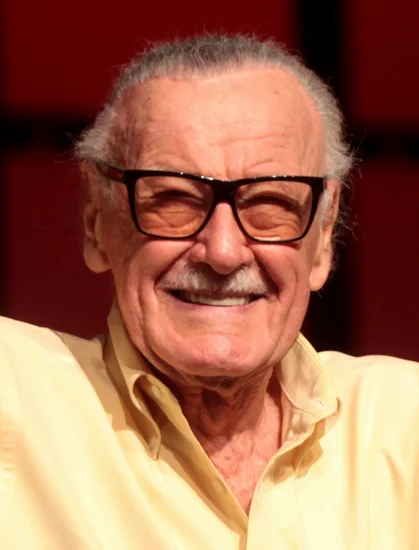
American publisher Stan Lee was born, future creator of iconic comic book characters that would define popular culture. His childhood in New York City sparked his lifelong passion for storytelling and illustration.
Lee would revolutionize comic books by creating complex superhero characters with human flaws. His Marvel Comics creations became global entertainment phenomena spanning multiple media platforms.
1932 – Nichelle Nichols
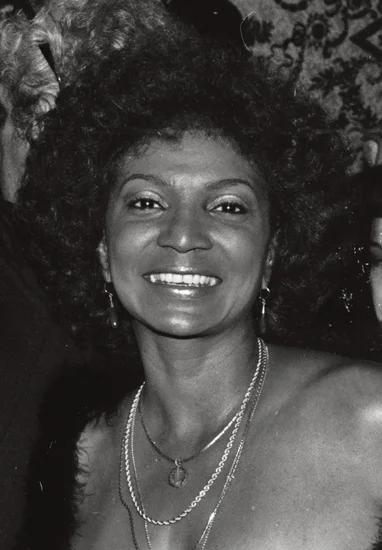
American actress Nichelle Nichols was born, destined to break racial barriers in television and space exploration. Her early performing arts training prepared her for groundbreaking roles in entertainment.
Nichols’ portrayal of Lieutenant Uhura in Star Trek inspired generations of women and minorities. Her work with NASA helped recruit diverse astronaut candidates for space missions.
1944 – Kary Mullis

American biochemist Kary Mullis was born, future Nobel Prize laureate who would revolutionize molecular biology. His unconventional thinking and scientific creativity would transform genetic research.
Mullis invented the polymerase chain reaction (PCR) technique, enabling DNA amplification and analysis. His breakthrough made possible advances in forensic science, medical diagnostics, and genetic research.
1954 – Denzel Washington
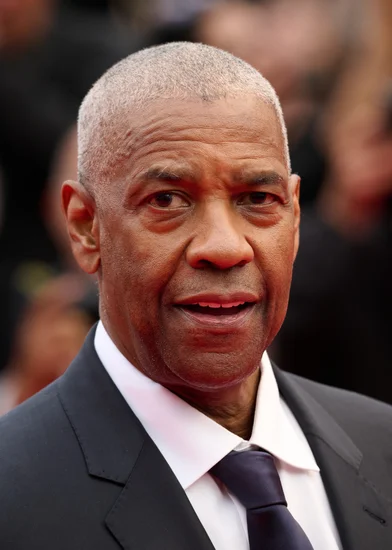
American actor Denzel Washington was born, destined to become one of cinema’s most respected performers. His early interest in drama and performance would lead to an illustrious acting career.
Washington’s powerful screen presence and versatility earned him multiple Academy Awards. His performances in films spanning various genres established him as a Hollywood icon.
1969 – Linus Torvalds

Finnish-American computer programmer Linus Torvalds was born, future creator of the Linux operating system. His early fascination with computer programming would revolutionize software development.
Torvalds developed Linux as a free, open-source operating system that transformed computing. His collaborative development approach influenced how software projects are managed worldwide.
1973 – Seth Meyers

American comedian Seth Meyers was born, future television host and comedy writer who would influence late-night entertainment. His early comedic talents would lead to successful television career.
Meyers’ work on Saturday Night Live and his own talk show demonstrated sharp political commentary. His comedy style helped shape contemporary late-night television programming.
Notable Deaths on December 28
1937 – Maurice Ravel
French composer Maurice Ravel died, leaving behind a remarkable legacy of innovative classical music. His compositions, including “Bolero” and “Daphnis et Chloé,” revolutionized orchestral music.
Ravel’s impressionist style and masterful orchestration influenced generations of composers. His death marked the end of an era in French classical music composition.
1947 – Victor Emmanuel III of Italy
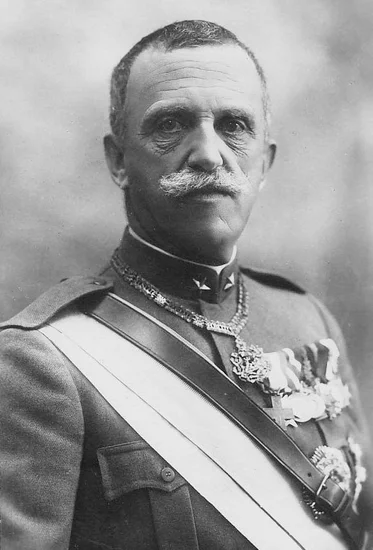
Victor Emmanuel III of Italy died in exile, ending a controversial reign that spanned two world wars. His abdication following World War II concluded the Italian monarchy.
The king’s complex relationship with Mussolini and fascism tarnished his legacy. His death marked the final chapter of Italy’s monarchical history.
1963 – Paul Hindemith
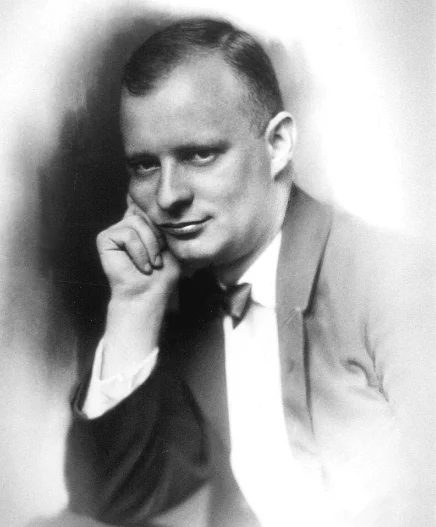
German composer Paul Hindemith died, concluding a prolific career that bridged traditional and modern musical styles. His compositions and theoretical writings influenced 20th-century classical music.
Hindemith’s neo-classical approach and pedagogical works shaped musical education. His death represented a significant loss to contemporary classical music composition.
1983 – Dennis Wilson

Beach Boys drummer Dennis Wilson died tragically, ending the life of a talented musician whose personal struggles overshadowed his artistic contributions. His death shocked the music world.
Wilson’s drumming and songwriting helped define the Beach Boys’ distinctive sound. His troubled life and early death became emblematic of rock music’s darker aspects.
2004 – Susan Sontag

American novelist and cultural critic Susan Sontag died, leaving behind influential writings on photography, culture, and politics. Her intellectual contributions shaped contemporary cultural discourse.
Sontag’s essays and novels challenged conventional thinking about art and society. Her death marked the loss of one of America’s most important public intellectuals.
2016 – Debbie Reynolds
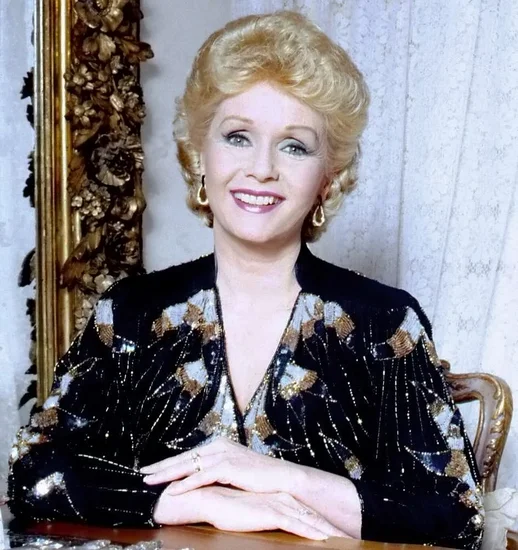
American actress Debbie Reynolds died one day after her daughter Carrie Fisher’s death, shocking Hollywood and fans worldwide. Her passing marked the end of a legendary entertainment career.
Reynolds’ performances in classic musicals like “Singin’ in the Rain” defined Hollywood’s golden age. Her death, following her daughter’s, created an unprecedented moment of collective mourning.
Holidays and Observances on December 28
Feast of the Holy Innocents

The Feast of the Holy Innocents, also known as Childermas, commemorates the biblical massacre of infants by King Herod. Catholic Church, Church of England, and Lutheran Church observe this solemn religious holiday.
In Spain and Latin American countries, the festival transforms into a day of pranks called “inocentadas,” similar to April Fools’ Day. This unique cultural adaptation demonstrates how religious observances evolve across different societies.
King Taksin Memorial Day
Thailand observes King Taksin Memorial Day, honoring the monarch who restored Siamese independence in the 18th century. This national holiday celebrates Thai sovereignty and cultural identity.
King Taksin’s military victories and administrative reforms helped establish modern Thailand’s foundations. The memorial day reinforces Thai national pride and historical consciousness.
Proclamation Day
South Australia celebrates Proclamation Day, marking the establishment of the colony and its governance. The celebration traditionally begins the day following Christmas, extending the holiday season.
This regional holiday commemorates South Australia’s unique founding as a free settlement without convict labor. The observance reflects the state’s distinct colonial history and cultural identity.
